I Hate to Break It To You BUT Fido and Fluffy Will Eat You When You Die!
I hate to be the first one to break this to you BUT if you die, your dog or cat will most likely eat you. All of those years of love and nurturing be damned, the moment you take your last breath, you could very well become dog or cat food. Okay, okay, it may not be that bad, but the phenomenon of pets eating their dead owners is not as rare as you might think. As a matter of fact, there have been numerous reports by first responders and family members of pets eating their dead owners. Now I know it sounds like I’m being a bit flippant, and honestly, I probably am, just a bit, but there is actually science behind all of this and its actually kind of interesting.
So, why would a pet eat his or her owner?

Well the answer may not be as straightforward as you’d think. The most popular theory has always been simple hunger, and in many situations, this may be the case. Obviously if their master dies, there is no one there to feed the animal, and he or she must fend for his or herself to survive. As disturbing as most of us probably find this, it really does make sense from an evolutionary point of view. Simple survival of the fittest.
But, is hunger the only reason kitties nibble on their masters?

Well, this is where things get a bit interesting. The short answer is no. In fact, there have been many documented cases of doggies dining on their master within only a few hours of their death. As a matter of fact, there have even been cases of animals not only eating their owners soon after their death but doing so when there was other food, even pet food, readily available. So clearly it is not always just a simple matter of hunger. At the end of the day, no matter how domesticated pets are, they are still animals and one pretty universal animal instinct is to take advantage of easy prey.
Now a little something to put your mind at ease, even if it is just a little bit.
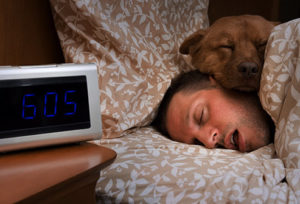
Recent research and case studies suggest that animals may not have ill intent when they eat their owners, at least not initially. Many pet psychologists and animal behaviorist suggest that at least in the case of dogs, the act likely starts with a concerned pet attempting to arouse their owner by licking his or her face. When this initial attempt is unsuccessful, the licking progresses to the more aggressive act of biting, again trying to get a response. As the dog becomes more frantic and the owner still fails to respond, the biting can easily lead to eating.
Okay, so which pets are the biggest offenders?
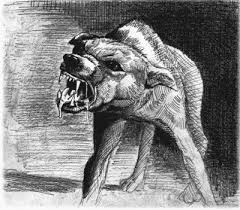
I’m sure all of you dog lovers out there are condemning those evil, disloyal, people-eating cats straight to kitty hell, right? I mean cats are just so sneaky and duplicitous anyway, always hiding around corners or under radiators swiping and swatting at you when you least expect it. Well, I’ve got news for you, doggie nation. Dogs are by far the biggest human eating offenders. It’s not even close. Not only are dogs the biggest offenders, but in up to 25% of cases, dogs started eating their owners when other food was readily available. To be fair, not all dogs offend equally. Larger breeds tend to be the biggest offenders (pun totally intended), especially in homes with multiple dogs. Now, I’m not giving cats a pass; there is no shortage of documented cases of cats also eating their owners, but dogs still take the cake.
So, how exactly do animals eat their dearly departed masters?
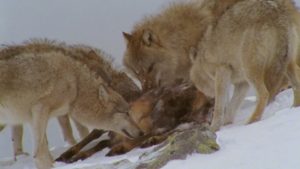
Let’s be honest folks, this part of the discussion is the most morbid part of an already morbid conversation, but inquiring minds want to know so here we go. As you might have guessed, when it comes to eating their owner’s postmortem, dogs and cats again do it differently. Dogs tend to start with the face and then go for the extremities, leaving the torso untouched in all but the most extreme cases. When you consider the theory that dogs frequently start by trying to arouse their dead owners, this actually makes sense. Cats on the other hand tend to be a bit pickier, specifically going for the softer facial tissues, namely the nose and the lips. They generally leave the rest of the body untouched.
Surely these animals will at least wait for you to die before they start eating, right?

As weird as this may sound, the answer is sometimes no. While most animals will at least wait for you to die, there have been cases of pets eating or at least trying to eat people before their death. Granted the cases are few and far between but they do happen. Most cases either involved a pet trying to eat an owner who became very drunk (in this case usually cats) or pets trying to eat the dying limbs of diabetic patients (in this case usually dogs).
So, is it just cats and dogs?
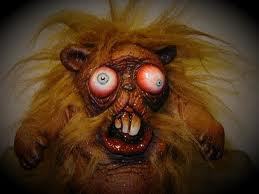
If I get a hamster am I safe? While cats and dogs do make up the majority of documented cases, they also make up the majority of the household pets, so this kind of makes sense. Cats and dogs however are not alone and there have been cases of just about any pet you can imagine, from birds to hamsters, eating their owners. Speaking of hamsters, one of the worst cases of pet scavenging actually involved a free range hamster whose owner died of pneumonia. Not only did the hamster eat its owner, it actually created a burrow in a drawer using flesh, fat and muscle from said owner.
So, what can you do?
It’s nature folks, so there’s not a whole lot in reality that you can do. There are however some things that will reduce the likelihood of animal scavenging including:
- Make sure that there is always food readily accessible for your pet.
- Consider sleeping with your door closed.
- Have people that regularly check on you, especially if you are ill.
- While you are at it, you should regularly check on elderly or infirm neighbors especially if they have pets.
At the end of the day, it’s nature. While these cases may be a bit graphic and disturbing, they are the exception and not the rule. So don’t give Fido or Fluffy the side eye and definitely don’t leave them on the side of the road. Just enjoy your pets and file this one away under an interesting (and probably useless) factoid.
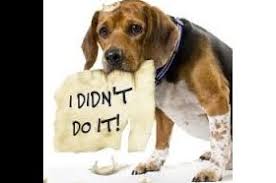
 December 3, 2017
December 3, 2017





 May 19, 2018
May 19, 2018 



